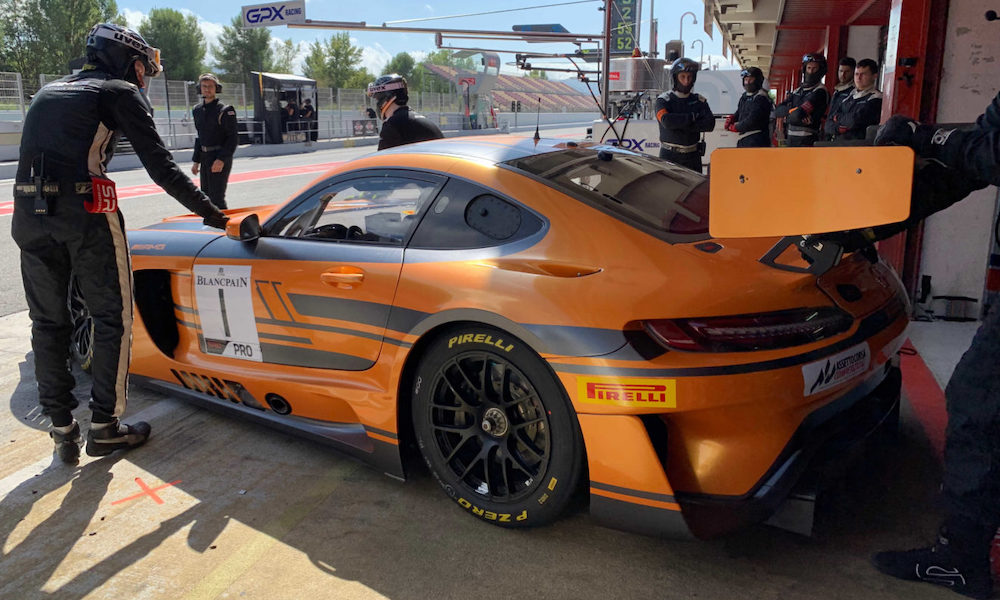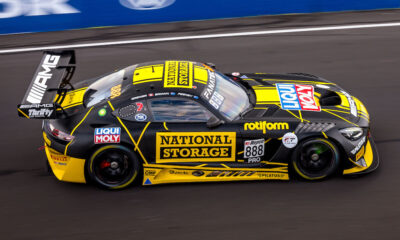
Photo: Endurance-Info
Mercedes-AMG ran its GT3 Evo kit in the paid test sessions ahead of this weekend’s Blancpain GT Series finale at Circuit de Barcelona-Catalunya in order to speed up the homologation process.
Head of Mercedes-AMG customer racing Stefan Wendl explained that running as part of the pre-event Blancpain GT paid test on Thursday and Friday was to help collect information for homologation and Balance of Performance purposes.
The car has already competed in non-homologated forms in 24H Series competition and completed a 35-hour endurance test at the Slovakiaring last week.
“We decided already that we would use this opportunity here to bring the car in direct competition to reference the car for ourselves,” Wendl told Sportscar365.
“[We used it] for testing and also involved the SRO into this, so they can get the data they need for processes needed for next season.
“We were running a complete SRO scrutineering. The BoP driver Jean-Marc Gounon got the chance to test the car for three sessions, and that was very useful for us and I hope very useful for the SRO.”
The homologation process is being carried out earlier than usual but Wendl expects this to help the car be on form as soon as possible after it makes its official race debut in January.
The new streamlined system, which could mean the car achieves homologation on Jan. 1, also avoids it having to run with temporary homologation in the Rolex 24 at Daytona.
“It’s tough for us, the manufacturers, to provide all the data in time,” Wendl explained.
“It’s not only the process that has shifted about three months earlier, but it’s also the amount of data and quality of data that the request, it’s on a higher level than it was in earlier homologation processes that we did.
“Overall, everything is very good and I think it’s the right way to go because it raises the quality of the homologation of the cars and also the BoP from the first moment onwards.
“I would expect for future new cars that there is not such a ramp-up process until the car gets balanced to the field, so that we start on a better level and closer to the competition.
“This is what it’s made for and to not use temporary homologations for the first important races, which is something that IMSA is also not looking for.”
Car Could Run in Bathurst 12H
If an early homologation is achieved Mercedes-AMG could bring its new car to February’s Liqui-Moly Bathurst 12 Hour, allowing its partner teams to use the same model throughout the Intercontinental GT Challenge powered by Pirelli season.
This would be in contrast to previous years, when manufacturers have not received homologation in time for the Australian race, forcing them to run their old cars.
“From my perspective, I would like to,” Wendl said when asked if the car could run at Bathurst. “For sure, it’s only possible if you have the homologation and you have the BoP done.
“That is something we will see. First of all, we do it only to do everything necessary to have all options open. I think this is one part of it, the long BoP process.
“We are in the middle of the process so next week there will be the wind tunnel testing with the FIA and afterwards, technical inspection.
“It means that from our side, the car is ready and we try to use all opportunities we have, as early as possible, to share the data with the SRO and start on a good level wherever it is, next year.”

























